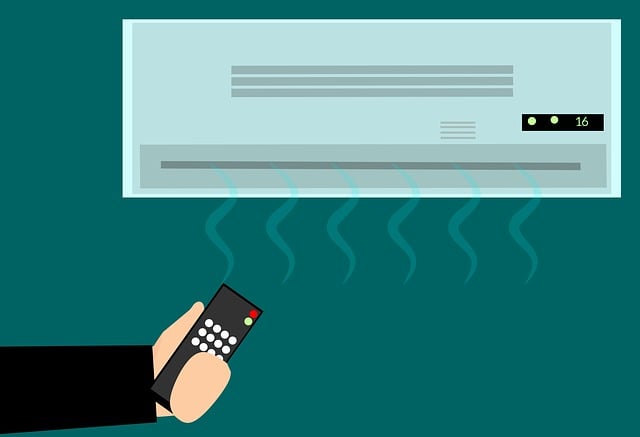The choice between an air ionizer and vs. purifier can be difficult, as they both have benefits. But if you’re looking for more information on what kind of indoor pollution problem your home is experiencing and how effective these products will work in solving it.
The key difference between the two types comes down to their ability to produce negatively charged ions versus attracting positively charged molecules inside a room through aroma oils like lavender or peppermint which helps remove suspended particles along with VOCs. Visit airwaterhealing.com to explore air purifiers.
How to Choose the Right Air Purifier for You?
There are two main types of air purifiers, filter-based and filterless. Each has its own set of advantages which we’ll cover below:
The cons associated with each type are different too. Make sure you read through them carefully before making your decision so that when it comes time to buy one they have all been considered in depth by yourself.
When to Use an Air Purifier vs. an Air Ionizer?
The air you breathe can be dirty and toxic, but there are ways for your home to get fresh. One way is through appliances that use filters or ionizers, the difference between them being how they purify the environment in which we live.
A lot of people think only central heating systems provide good quality filtered warmth when actually these types of devices also work with regards to allergies too because both have been shown over time as effective at removing harmful particles from our surroundings so hopefully this helps clear things up.
Air Ionizers
Ionizers use ionization to clean the air. What they do is release negatively charged ions which then bind into airborne particles like dust, smoke, and other pollutants for disposal throughout your home or office space.
The process of creating an ionizer starts with water being heated up until it becomes supersaturated meaning there are more positive charges than normal left inside each molecule after all these assertive chemicals have been dissolved away from them so only neutral ones remain.
Before being poured onto metal plates where energy fields are generated through electrical charge separation at vital points along channels running parallel across both surfaces.
Air Purifiers
The process of an air purifier is quite simple. It uses filters that are made up of different materials to trap all kinds of particles in it so that a clean, healthy breathing room can push them out into your living space again for you.
The two most common types of air filters are:
Aluminum Pre-Filters
The main function of these filters is to trap larger particles like pet dander, hair and coagulated dust. They usually go first in line when used with other types but they work best alone if your goal only has smaller particles coming into contact with it such as fine PM2-5s.
HEPA Filters
HEPA stands for high-efficiency particulate arrestance and it’s a filter found in all air purifiers. These filters are known to be effective against mold spores, pollen & dust particles; they help make your home cleaner without the added worry of harmful chemicals or toxins that may escape into our bodies when we inhale them.
As well as causing allergies by coating things with their residue this can trigger an immune response from sensitive individuals.
The use of air filters in an HVAC system is not limited to the modern day. Way back when people would use a whole house fan hooked up directly onto their furnace and they’d have this huge contraption that looked like something straight outta Star Wars.
These days though we’ve got everything sweetened with technology. While some may still go old school by using HEPA or MERV-style mechanical filters alone. Triad Aer purifiers are known as good in the USA as they are effective and have little maintenance.
Advantages And Drawbacks Of Air Ionizers
Pros
Larger area of coverage
Ionizers provide an additional benefit over purifiers in that they can cover twice as much area. This is beneficial if you have larger spaces to keep clean or want the option of having two systems without needing more equipment, which will save on costs.
Lower maintenance requirements
Ionizers work to remove impurities from the air rather than just masking them. They don’t require regular maintenance and can last for years with minimal attention, making them an excellent investment.
Cons
Harmful emissions from certain types of ionizers
The negative effects of ozone are extensive and well-documented. It’s important to be aware that exposure can lead not only to shortness of breath, but also serious respiratory issues like coughing infections which will make you feel even worse than before.
Fails to Eliminate Pollutants
The ionizer doesn’t really get rid of air pollution; it just makes the particles heavy enough so they drop down and don’t float around in mid-air. You might find your surfaces like floors or tabletops much dustier which requires you to clean more often because these bits fall on beds and other non-smooth surfaces.
Pros & Cons Of Air Purifiers
Pros
Filters contaminants
The purifier is the perfect solution for those who want to protect their family from harmful particulates. Unlike ionizers that leave contaminants where they fall, this traps them inside so you can breathe easily knowing it’s away and out of reach for everyone in your house.
Cons
Requires regular maintenance
The HEPA filter is the more costly option to maintain, but it can last you up until one year. Beyond that point, your costs will outweigh any benefits from using an ionizer because clogged filters lose their effectiveness and put a strain on fan motors which may lead them faster wear and tear over time.







